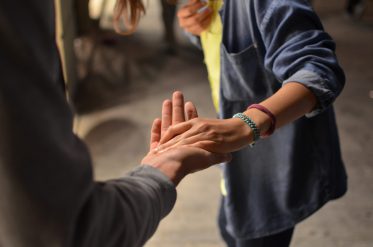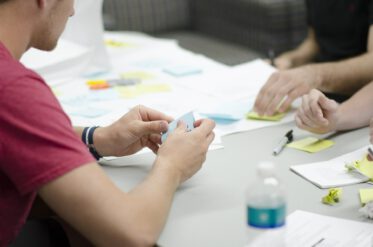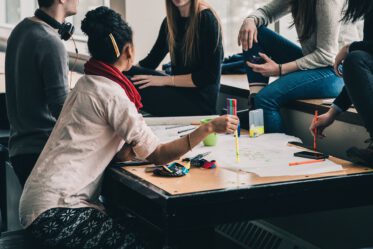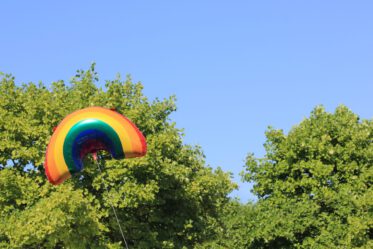
Get help
Reaching out for help is never easy for anyone who has experienced trauma.
If you are visiting this page for the first time – well done! You have already taken a huge step on your journey of recovery and healing.

PLEASE NOTE: Due to the quantity of referrals received across 2024, we will be pausing all new referrals until the new year while we process referrals already received and do our best to offer support to those on our waiting list as soon as possible.
To access any of the services below you need to request a referral from your mental health team, GP surgery, or other support services. (e.g. other charities, student services, social prescribers, drug & alcohol services, etc).
The majority of our services are face-to-face at our Support Centre in Bath, with a small number of other services taking place at other venues from 2024 to help improve access to support.
Note for Professionals: If you don’t have a copy of our latest referral form, please contact services@traumabreakthrough.org to request one.


Group Sessions


Group Psychotherapy
Although joining a therapy group can feel very daunting, group psychotherapy is one of the most powerful tools for trauma recovery – it’s why we run 2-3 per week.
Group therapy allows survivors to journey together, support one another, connect, and learn new ways to communicate, be accountable, and explore emotions in a safe space.
Our groups are long-term, with the same people attending weekly sessions, allowing for community to build and for a safe and supported atmosphere for everyone. Each group is facilitated by experienced therapists and sometimes also a trainee or placement student.

Creative Psychotherapy Group
Creative Group Psychotherapy mixes traditional group psychotherapy with a range of creative and expressive methods that can help participants to explore difficult things from the past through creative methods such as art-making or grounding activities to help hold the emotions and find ways forward.
The space gives participants the ability to process trauma in a shared way without the focus fully on sharing through verbal communication, which can be helpful for those who struggle in traditional group settings. These groups also offer a space where adult survivors of childhood abuse can create, play, make mistakes, make mess, and find their true character – opportunities that were often taken from them as children, which is why expressive therapy spaces are vital for trauma work.

Male survivors Group
Alongside our other groups, we run a specialist psychotherapy group for male survivors of sexual assault (recent or historic). We know that it takes on average 26 years for men to disclose abuse that they’ve experienced, and as a result, men struggle disproportionately with guilt, shame, anger, and emotional numbing following abuse. Our men’s group is normally run by two facilitators for up to 8 men and offers a safe space for men to talk through their experiences and the impact with others who understand.

START Programme
START ‘Survivors of Trauma and Abuse Recovering Together’ is an 8 week psychoeducation course (mental health skills course).
START was designed by the team at Trauma Breakthrough based on elements from our training courses and many years working with trauma. Learning how trauma impacts us across different life areas (and ways of coping with that) can be a hugely effective for long term recovery.
The 8-week programme offers 90-minute weekly sessions looking at areas such as how the brain responds to trauma, fight/flight/freeze, grounding skills, attachment styles, boundaries, and helps you to develop skills for long-term recovery.
The START Programme runs roughly 3-4 times a year, usually: Feb-April, May-July, Sept-Nov, and we try to offer 1-2 online versions each year.


One to One Sessions


Psychotherapy
Our therapists offer specialist individual psychotherapy and counselling to help survivors of trauma to process their experiences and manage some of the long-term effects arising from them. This can be offered short-term or long-term. No two people experience trauma in the same way, so therapy shouldn’t be “one size fits all” either, that’s why our therapists have a range of training and approaches so that therapy modalities can match to what will be most helpful for you.
All of our therapists are trained, experienced, and accredited by nationally recognised bodies such as the UK Council for Psychotherapy (UKCP), Health Care Professionals Council (HCPC) or the British Association for Counselling and Psychotherapy (BACP).

Art Psychotherapy
The art psychotherapists on our team are able to offer individuals creative ways to process events and emotions in sessions.
Art Psychotherapy uses a mix of art and creativity alongside talking. Our art psychotherapists use creative methods to aid you in processing difficult experiences, memories and feelings in a safe and holding way, whilst allowing you to embrace play, mess and expression – you don’t have to be a creative person or “good” at art to benefit from art therapy sessions.


Other Support


Other Support
We know that unfortunately not everyone lives near one of our support bases.
Therefore, we have a range of resources on our web shop to help.
These include FREE downloads as well as low-cost grounding/fidget toys, and recordings of our mental health courses on things like managing flashbacks, helping with sleep, attachment styles, etc.
You can find them at www.traumabreakthrough.org/shop
It’s our way of being able to offer at least something to those we can’t support in person, they’re also designed to help those supporting survivors too!



Whats the next step?
To access any of the services below you need to request a referral from your mental health team, GP surgery, or other support services. (e.g. other charities, student services, social prescribers, drug & alcohol services, etc).
The majority of our services are face-to-face at our Support Centre in Bath, with a small number of other services taking place at other venues from 2024 to help improve access to support.
If you have any questions before organising a referral, feel free to get in touch by calling 01225 984637 or emailing
services@traumabreakthrough.org
